Monthly Journal
November 2022
International Press Review
The most relevant events of the area through international sources
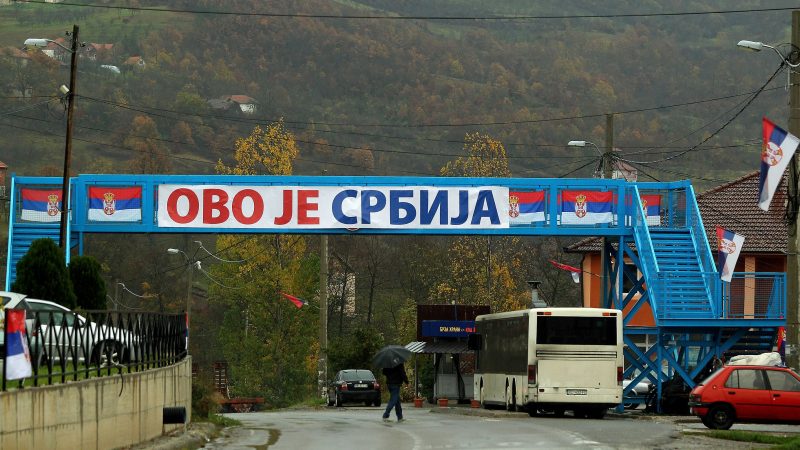
French-German plan for Serbia-Kosovo relations leaked
Euractiv
The text of an alleged Franco-German proposal for a possible diplomatic solution between Kosovo and Serbia was leaked by Euractiv, a portal specialised in European affairs. According to the portal, the unofficial proposal focuses on the normalisation of relations, based on the ‘Two-Germanies’ model, with the exchange of permanent diplomatic missions, similar to embassies but at a lower level. It also offers a clear EU perspective to both countries. However, Serbia declared that the plan was “unacceptable” because it violated Serbia’s Constitution, which prohibits any step towards a recognition of Kosovo, even only de facto.
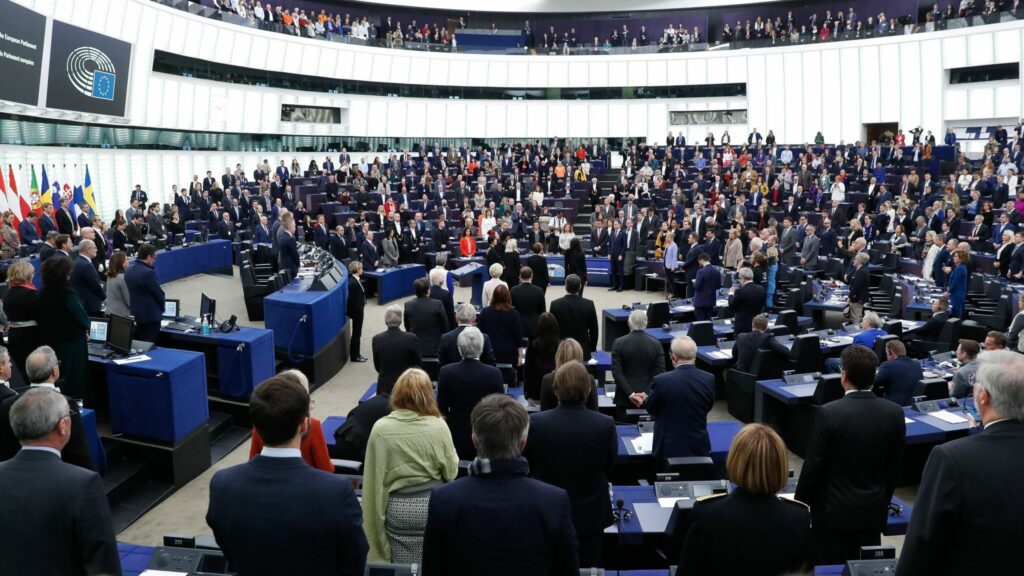
EU Parliament asks Brussels to link Serbia’s progress to sanctions
Balkan Insight
The European Parliament, in a resolution adopted in November, recommended the EU executive to “advance accession negotiations with Serbia only if the country aligns with EU sanctions against Russia.” Furthermore, EU MEPs also urged a reconsideration of “any bilateral and EU funds for Serbia that would benefit the Serbian authorities, in particular, any of projects financed under the Western Balkan Economic and Investment Plan, to ensure that all EU expenditure is fully in line with the EU’s strategic goals and interests.” Belgrade, fully energy dependent on Moscow, is still refusing to adopt sanctions against Russia despite pressures from the EU.
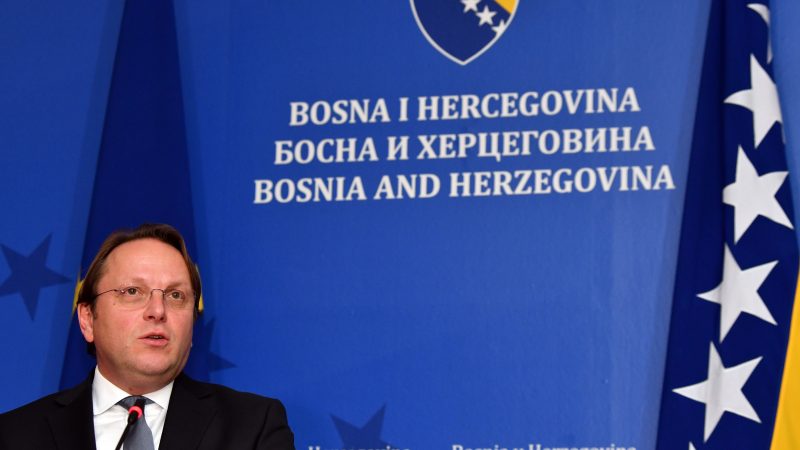
EU candidate status for Bosnia expected in December
Euractiv
The EU’s Enlargement Commissioner, Oliver Varhelyi, expressed optimism that Bosnia and Herzegovina will be given EU candidate status next month provided the conditions recently laid down by the European Commission are met. The prerequisites are mostly related to 14 priorities outlined by the European Commission already in 2019. Several EU nations, including Austria, Croatia and Slovenia, are advocating for Bosnia’s entry process to be accelerated after Ukraine and Moldova were given the status in June. France and the Netherlands are currently the biggest opponents. Germany shares their concerns.
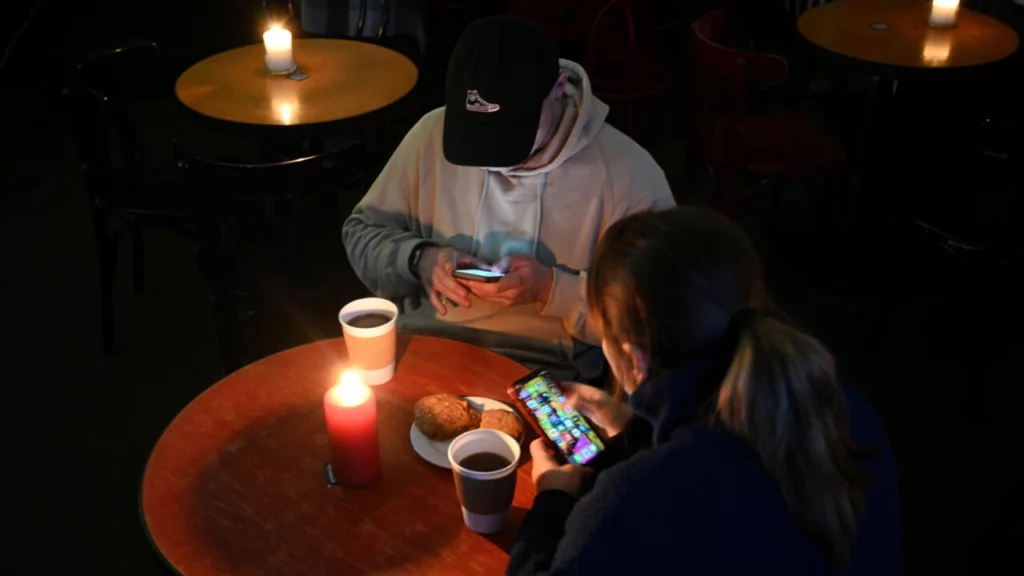
NATO allies met in Romania to discuss how to help Ukraine
France Press
NATO foreign ministers met in Bucharest at the end of November to discuss supplemental aid for Ukraine, with Secretary-General Jens Stoltenberg promising that the alliance would not abandon Kyiv. Stoltenberg stated that “the message from all of us will be that we need to do more” to assist Kyiv in repairing its gas and electricity infrastructure and providing air defence. NATO has already strengthened its eastern flank by sending more troops and equipment to countries such as Romania. Non-NATO Moldova was present at the talks, as were representatives from Georgia and Bosnia and Herzegovina.
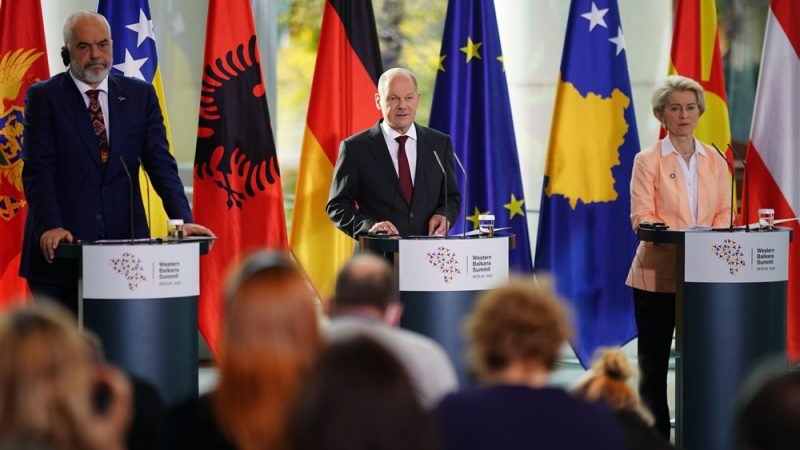
Western Balkans strengthen cooperation in Berlin
Euractiv
Western Balkan countries signed three agreements under the so-called “Berlin Process”, a positive signal ahead of the Western Balkan summit to be held in December in Albania. The format, launched in 2014 by former German Chancellor Angela Merkel, aims to promote rapprochement between the six Western Balkan states and to foster regional and EU integration. The six countries reached agreements that will facilitate the free movement of citizens throughout the region and mutual recognition of doctors’, dentists’, and architects’ professional qualifications. The agreements represent a significant moment in regional integration.
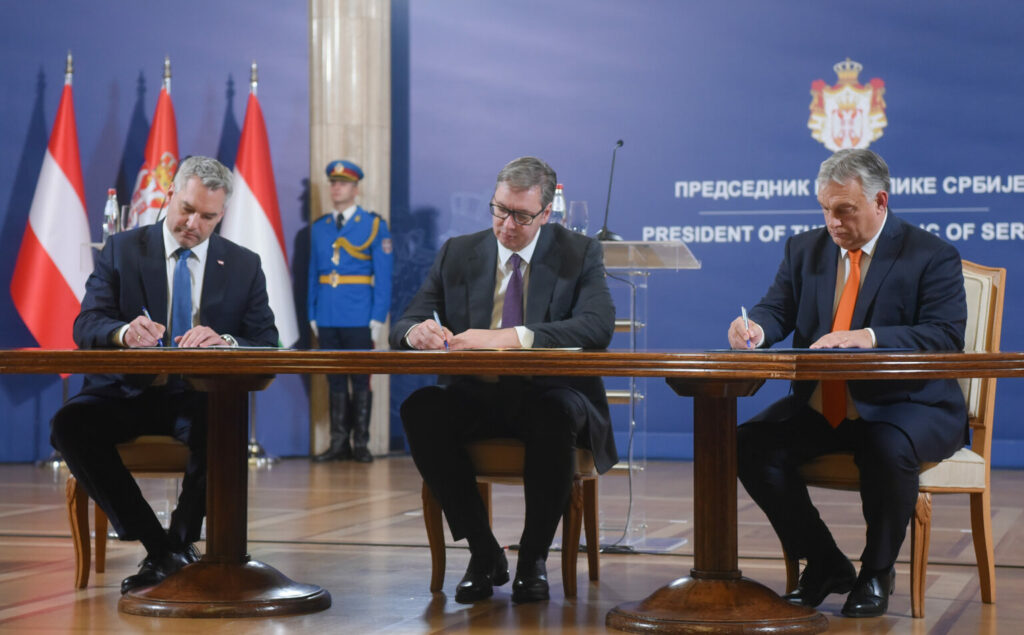
Migrants’ flows increase again throughout the Balkans
Euronews
The so-called ‘Balkan Route’ was the most active migratory path towards Europe this year, with the increased flows of migrants forcing the EU to negotiate with Albania, Bosnia and Herzegovina, Montenegro, and Serbia to broaden Frontex cooperation agreements for better border controls. At the same time, Hungary, Austria, and Serbia agreed on a migration deal to stop migrants flowing into the EU via the Balkan countries. Authorities in Europe detected 281.000 attempts of irregular entries at the European Union’s external borders in the first ten months of this year, with the Balkan route accounting for more than 22.300 detections in October alone, nearly 130.000 since January (+168% year-on-year).
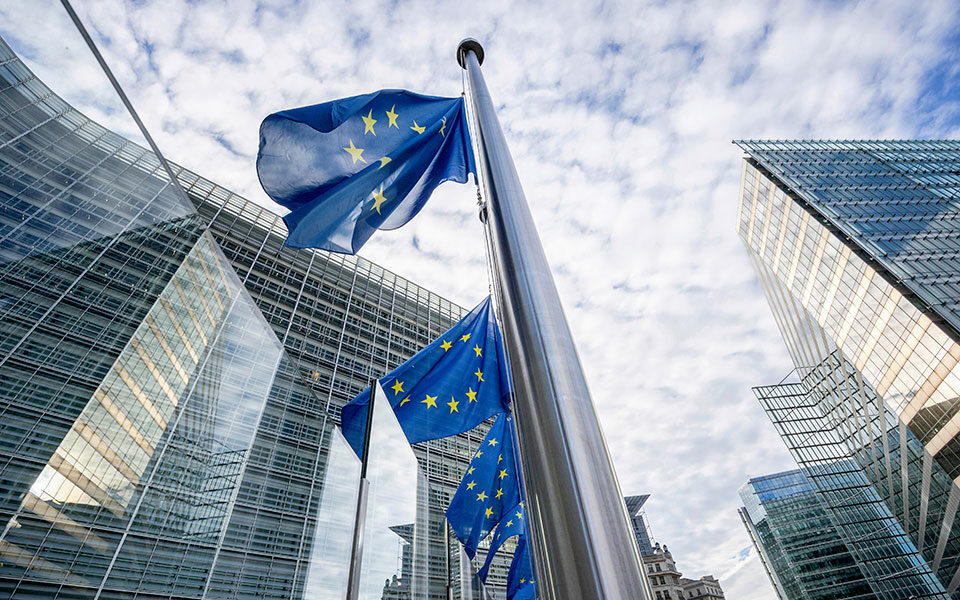
Balkan mafia networks more active in drug trafficking in the EU
Kathimerini
Criminal networks in the Western Balkans have emerged as critical players in both regional and European Union drug markets, according to a report released by the EU’s drugs agency (EMCDDA). According to the report, the strategic geographical location of countries such as Albania, Montenegro, North Macedonia, Serbia, Bosnia and Herzegovina, and Kosovo, combined with the high demand for drugs in the European Union and Turkey, has accelerated criminal groups’ operations. The Western Balkans and EU countries also serve as safe havens for criminals fleeing rival criminal groups or law enforcement, the report suggested.
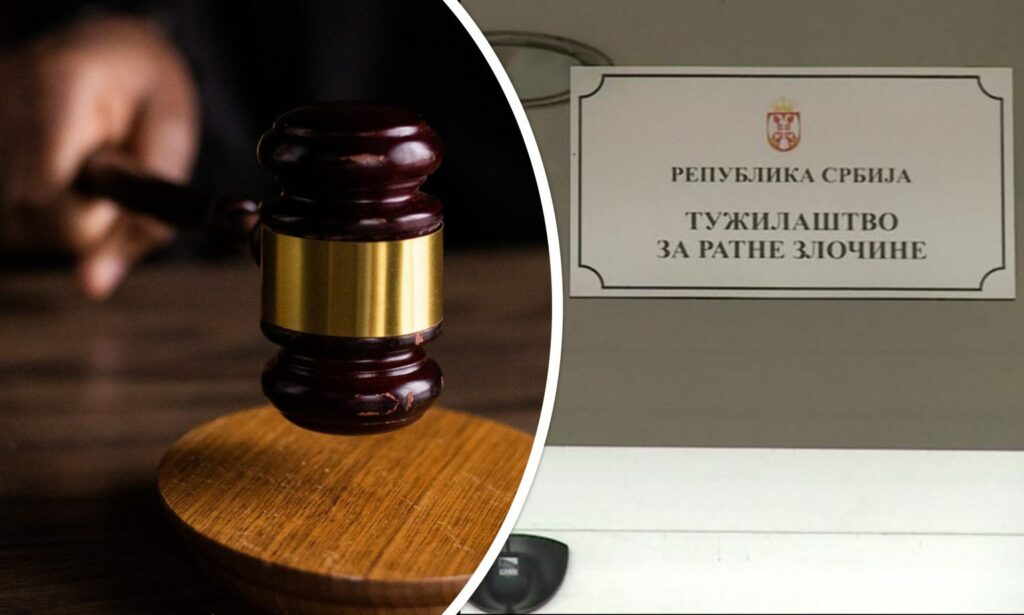
Serbia to put former Croatian pilots on trial
N1
The trial of four former Croatian Air Force officers accused by Serbia of war crimes committed during Operation Storm in August 1995 could begin in December, according to the attorney for one of the accused. Croatia does not recognise Serbia’s jurisdiction in this case, and its top officials have repeatedly stated that it is a provocation and a politically motivated indictment. Croatia will do everything possible to protect the pilots, the authorities in Zagreb said. The trial has the potential to reopen old wounds and spark new tensions between the two countries.
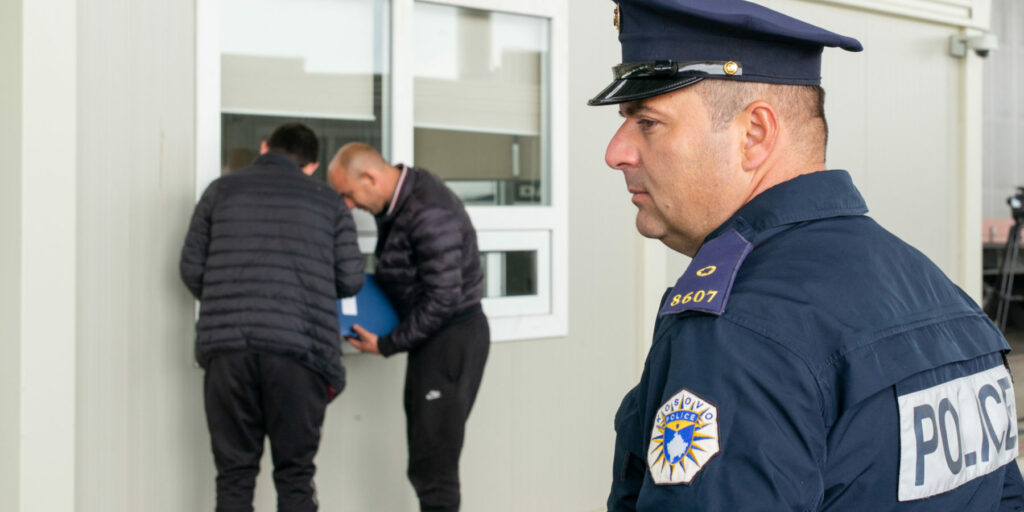
Kosovo could get visa liberalisation in 2024 only
European Western Balkans
Even though Pristina has long met all of the criteria for visa liberalisation, Kosovo remains the only country in Europe where citizens must apply for visas to enter the EU. However, the Czech Presidency of the European Union revived the issue in the hope of overcoming the reservations of certain Member States that had long opposed visa liberalisation. If Member States reach an agreement in the Council on the Czech plan, Kosovo’s decade-long quest for visa-free travel in the Schengen zone may be realised, but only in January 2024.
The Insight Angle

Srdjan Majstorovic
Currently Chairman of the Governing Board of the think tank European Policy Centre (CEP). He previously worked as the Deputy Director of the Serbian European Integration Office and as a member of the Negotiating Team for the Republic of Serbia’s Accession to the European Union, where he was in charge of political criteria and rule of law chapters. He is also a member of BIEPAG (Balkans in Europe Policy Advisory Group) and of the Board of the Open Society Foundation Serbia.
Mr. Majstorovic, Serbia maintains its neutral policy, even in the face of Russian aggression against Ukraine. Do you believe Belgrade will ever impose sanctions on Moscow? If not, what consequences will Serbia face in the process of EU integration?
The real question is when Serbia will introduce sanctions on Russia, and I am positive it will happen eventually, even though not immediately. But the Serbian leadership understands that the country’s economy and future depend on a close relationship with the EU. Two elements are crucial for a decision on the eventual introduction of sanctions to Russia: helping Serbia become less dependent on Russian gas and preparing the public for a shift of the anti-Western narrative promoted by officials and loyal media. It is becoming evident that both US and EU recognize Serbia’s energy vulnerability and are ready to support the diversification of Serbia’s gas supply and energy security. However, the unequivocal shift of the narrative of Serbian leadership is still absent. If the Serbian leadership doesn’t change its ‘no sanction’ policy, possible consequences might include suspension of EU accession negotiations and withdrawal of investments and EU funding, leaving Serbia isolated at the periphery of future EU.
Even if the latest crisis between Belgrade and Pristina on car plates was resolved, it appears that a final agreement on the ‘normalization’ of the relationship will not be reached anytime soon. Do you believe there is a viable solution to the Kosovo issue? If so, which one you think would be suitable to both capitals?
The only sustainable solution for the peaceful future of both countries is their joint accession to the EU. Instead of drawing a hard border between Serbia and Kosovo, the future is in its removal and “unification” of the two as members under the EU flag. It’s unrealistic to believe this will happen soon. It will take some time for politicians on both sides to recognize the historical context and start changing divisive nationalistic narratives. Difficult compromises, political courage and a broader geopolitical vision, will be needed on all sides. Currently, both societies are not prepared to recognize the importance of a compromise-based solution. Thus, we are facing a severe challenge – how to use the wider context and the momentum while abstaining from the imposition of artificial deadlines for solutions that might not be sustainable. A sustainable outcome of normalization will require both sides to feel like winners. This will not be possible without the accession of both Kosovo and Serbia to the EU.
The EU integration process remains stalled in the majority of the countries in the region, despite hopes that Bosnia and Herzegovina will be granted candidate status by the end of the year. Do you believe the EU should still be the strategic goal for Balkan countries, or do you believe Europe has lost its allure?
In a time of geopolitical challenges, it is obvious there is no other alternative for the ‘Western Balkan six’ (WB6) but EU accession. The same goes for the EU if it wants to be recognized as a credible geopolitical player. The question is whether to continue implementing traditional EU accession tools expecting different results or to recognize the spirit of the moment and introduce an innovative approach – enable more structural investments and allow early inclusion of candidate countries in different EU institutions and policies. In contrast, stricter implementation of conditionality and reversibility principles will enable EU Members to control the process. A clear display of unequivocal political will from both sides is required to regain the trust and credibility of the EU enlargement process. EU Members and Candidates must unite around common strategic interest and develop a joint plan for the integration of Europe by 2030 – reaching a consensus on how to broaden the EU and prepare it for the accession of newcomers on one side; and how to resolve the outstanding issues which are preventing WB6 to move faster towards the EU membership, on the other.
The Balkans will face a series of significant crises in the coming months, not only political, but also in the energy sector, and, most likely, an economic downturn as a result of the conflict in Ukraine. Do you believe the region’s stability is in jeopardy? And how could the EU assist?
There’s no room for errors like the one at the start of the Covid-19 pandemic when WB6 were treated as third countries that were banned from importing medical equipment from the EU. The decision was soon changed, but the damage was done and exploited by local populists and Russia and China, who immediately launched their vaccine diplomacy.
There is a severe risk of further economic and social decline of the WB6 because of Russia’s aggression in Ukraine. Although significant financial support of 1 billion EUR from the EU to mitigate the impact of the energy crisis and accelerate the energy transition has been announced, the region is facing severe structural economic and social challenges which might escalate as a consequence of war in Ukraine. If, as it claims, the EU sees the region’s strategic importance, it must step up its structural support and include WB6 in broader EU-wide measures to mitigate the economic and social consequences of the war in Ukraine. The eventual costs of including the WB6 in EU support programs this time would be a wise strategic investment.
The Key Story
Strategic trends
Car plates provoke a new crisis
between Serbia and Kosovo
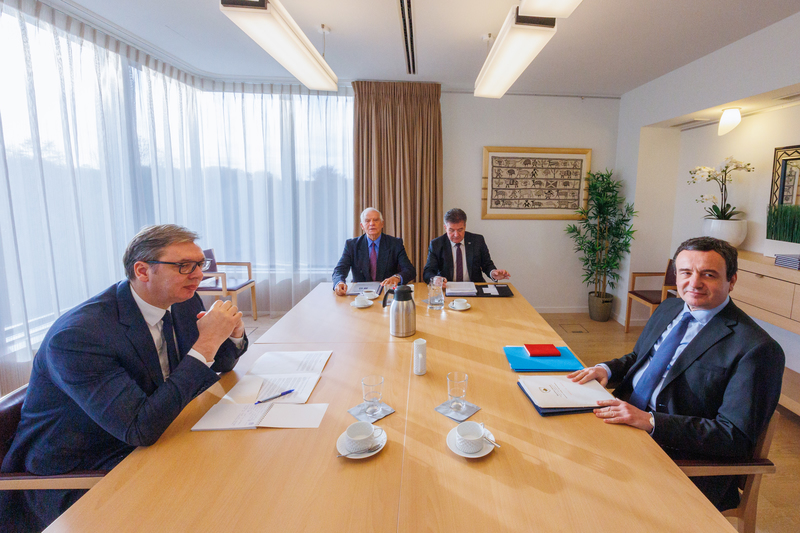
One of the worst crises between Serbia and Kosovo, capable of escalating into a military confrontation, was defused at the last moment by the international community’s diplomatic intervention at the end of November. Although a dangerous escalation was luckily avoided, the situation demonstrates how urgent it is to find a permanent solution to Serbia-Kosovo relations.
The latest dispute between Belgrade and Pristina involved license plates. The Kosovan Government declared in November that approximately 10.000 Serbs from Kosovo, mostly living in Northern Kosovo and still driving cars with Serbian license plates, must replace them by April 2023 with plates from the Republic of Kosovo. The plan of the authorities in Pristina involved warnings, fines, and road bans. Serbs in northern Kosovo have long refused to acknowledge the Pristina’s authority over that part of Kosovo and have largely remained loyal to the Government in Belgrade.
Serbs from Kosovo and authorities in Belgrade reacted angrily because of the new car plate rules, as they saw the request to use Kosovo’s car plates as a push for an indirect recognition of Kosovo’s unilateral independence. As a reaction, a large number of Kosovo Serbs working in public administration resigned across northern Kosovo, including hundreds of police officers, judges, prosecutors, as well as MPs from the so-called Srpska Lista, that represents Serbian interests in Kosovo’s Parliament. The counterreaction amounted to the most serious step ever taken by Serbs in Kosovo in the last decade.
The license plates saga came just months after a dispute over travel documents, which sparked unrest in northern Kosovo, with Serbs erecting barricades on main roads. The November crisis was only the latest in a series of similar outbursts of tension. Everything goes back to the declaration of independence by Serbia’s former Albanian-majority province in 2008, the primary source of friction between the two countries. Kosovo declared independence from Serbia in 2008 and has been recognised by over 100 countries. However, Serbia maintains that the declaration is illegal and that Kosovo remains part of its territory. Russia and China support Belgrade’s position also at the UN level.
During the last crisis, Belgrade has warned that if Pristina tries to punish the Serbs in the north, it will not sit idly by. Serbia’s army announced that it had shot down a drone flying near its military base in the country’s southwest near Kosovo, implying that the drones were flown into Serbia from Kosovo. Belgrade’s leadership asked the army officials to increase the armed force’s ability to respond to an emergency.
The European Union has mobilised its diplomacy to resolve the ‘war’ over car license plates and avoid an escalation in the north of Kosovo, where the majority of Serbs lives, with little results. First, Kosovo Prime Minister Albin Kurti and Serbian President Aleksandar Vucic met in Brussels to discuss the issue. However, while Vucic was willing to accept a compromise, Kurti was not. Though, before the Kosovo police issued the first fines, a US diplomatic intervention managed to bring the escalation to a halt. Washington first asked Kosovo for a 48-hours delay. Soon after, new negotiations started. Subsequently, EU foreign policy chief Josep Borrell announced that Belgrade and Pristina had “agreed to measures to avoid further escalation.” Serbia agreed to stop issuing license plates with markings indicating Kosovo cities, and Kosovo agreed to stop any further actions related to vehicle re-registration.
Despite the de-escalation many issues have remained unsolved, including the return of Serbs to Kosovo’s police and judiciary and of the MPs of Srpska Lista to Kosovo’s Parliament, as well as the establishment of the association of Serb communities in Kosovo, a form of self-governance for the minority community which Kosovo opposes.
Furthermore, the EU is now pushing in a more intense way Belgrade and Pristina to continue the dialogue towards a final agreement on the ‘normalisation’ of their relations, which may involve some kind of reciprocal recognition as suggested by the French-German proposal, a step that Serbia refuses to take. According to Pristina, the agreement should be reached by Spring 2023, but there are currently no signals of a breakthrough.
Further News and Views
Russia Today launches its Serbian language service
Sources: BNE Intellinews, ANSA, N1, Radio Free Europe
Russia Today, one of the most influential Kremlin-funded propaganda outlets, has launched a Serbian language service called RT Balkan, with plans to begin its TV broadcasts by 2024 at the latest. The RT Balkan portal is already functioning. Following Russia’s invasion of Ukraine in February, Western countries, including EU members, sanctioned Russia by blocking RT and other media outlets connected to the Kremlin, such as Sputnik. Serbia has refused to join Western sanctions against Russia, and the arrival of RT in Belgrade, which has been heavily criticized at the EU level, underscores Serbia’s bipolar foreign policy.
Moldova hit by indirect consequences of the conflict in Ukraine
Sources: EU Observer, Bloomberg, Euronews, Politico
Moldova is becoming a collateral victim of Russia’s war in Ukraine. After Russian military strikes on Ukraine’s energy infrastructure, the country between Romania and Ukraine lost power several times in November. Moldova produces only a tenth of its electricity, with 70% coming from Transnistria and 20% from Ukraine. The 2.6-million-person former Soviet republic was granted EU candidate status with Ukraine in June and is facing a winter energy crisis. Russia recently cut Moldova’s natural gas supply in half. The EU pledged 250 million to help Moldova. Moldova said Moscow is using gas as “political blackmail” against the country, with household energy prices increasing six-fold amid zero economic growth and 28% inflation.
Bulgaria and Romania buying F-16 fighters
Sources: Defence News, Meta Defence, Romania Journal
Bulgarian lawmakers have approved the purchase of eight F-16 fighter jets for the Bulgarian Air Force. The acquisition will cost nearly 1,3 billion euros, and Bulgaria’s Air Force will receive the first eight F-16s in 2025. The minister said that Bulgaria’s outdated Soviet-designed Mikoyan MiG 29 fighters will be withdrawn from service in 2023. Romania also bought 32 F-16s from Norway. As per the contract, the first plane will arrive in Romania in 2023. The 388-million-euro contract will be realised by 2023.
EU - NATO
NATO strengthening dialogue with Serbia and Bosnia-Herzegovina
Sources: NATO, First Channel
NATO is working to strengthen an already ongoing political dialogue with Serbia, which maintains its neutrality in the midst of the Ukrainian conflict, and Bosnia and Herzegovina, where Bosnian Serbs are an impediment to any move toward closer cooperation with the Alliance. NATO’s attention to the two countries was emphasized during Deputy Assistant Secretary General for Political Affairs and Security Policy Javier Colomina’s November visit to Belgrade and Sarajevo. In the meantime, NATO has invited Bosnia, Georgia, and Moldova, which are not yet NATO members, to a NATO Conference in Bucharest. According to NATO Secretary General Jens Stoltenberg, these three countries “are facing Russian pressure in a variety of ways, so at our meeting we will take additional steps to help them protect their independence and strengthen their ability to defend themselves.”
ECONOMICS
Romania goes nuclear with US support, Balkan cooperation improving
Sources: Balkan Insight, Euractiv, ABC, Balkan Green Energy News
After securing two US loans, Romania announced the construction of two new nuclear reactors at the Cernavoda nuclear power plant. In the midst of Russia’s aggression against Ukraine, the goal is to increase energy independence and security. The two reactors’ construction will be completed by 2030, thanks to a 3 billion dollars US loan. Romania already meets the majority of Moldova’s electricity needs, indirectly harmed by Russia’s war in Ukraine, which resulted in blackouts.
Meanwhile, Western Balkan leaders, despite their disagreements, agreed that the only way for the region to overcome the energy crisis is through a closely coordinated approach and the rapid deployment of renewable energy and the best available technologies.

Stefano Giantin
Journalist based in the Balkans since 2005, he covers Central- and Eastern Europe for a wide range of media outlets, including the Italian national news agency ANSA, and the dailies La Stampa and Il Piccolo.

